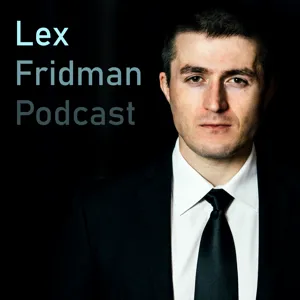
#397 – Greg Lukianoff: Cancel Culture, Deplatforming, Censorship & Free Speech
Lex Fridman PodcastSun Sep 24 2023
Cancel culture:
- Definition: uptick of campaigns to get people fired, expelled, deplatformed for speech that would normally be protected by the First Amendment
- Started around 2014, particularly on college campuses
- Includes attempts to cancel professors and ban books
- Creates a climate of fear where individuals can lose their jobs for having the wrong opinion
Freedom of speech:
- First Amendment protects freedom of speech from government interference
- Applies to government entities and public institutions like colleges and universities
- Freedom of speech is a fundamental human right and important for democracy
- Pragmatically necessary due to limited knowledge and self-deception in humans
Relationship between science and freedom of speech:
- Both are concerned with epistemology and the study/philosophy of knowledge
- Early history of freedom of speech intertwined with scientific revolution
- Principles from First Amendment law transfer well as pragmatic ideas about free speech
Distinction between left and right cancel culture:
- Cancel culture exists on both sides but manifests differently
- Left cancel culture more prevalent in academia due to left-leaning dominance
- Right cancel culture also present, often targeting professors or attempting book bans
FIRE's college free speech rankings:
- Rankings based on campus speech codes, disinvitation database, student surveys, professor punishment data
- Michigan Technological University ranked first overall in latest ranking
- Auburn University ranked second overall, UVA in top 10
- Harvard received lowest score (-10.69), followed by Penn, South Carolina, Georgetown, Fordham
Role of administrators in cancel culture:
- Some administrators facilitate and organize cancellations
- Instances of administrators buying tickets for angry students to shout down speakers
- Administrators coordinating with protestors, providing support and encouragement
- Investigations should determine if administrators contributed to cancellation attempts
Role of faculty in cancel culture:
- Increasing number of faculty signing petitions to punish fellow professors
- Disappointing that faculty would advocate for punishment rather than defending free speech rights
Incentives for better discourse on social media:
- Carrot question: how can high-quality debate and disagreement be incentivized?
- Importance of integrity, rigorous arguments, historical context, steel manning opposing views
- Constructive incentives needed to encourage thoughtful discourse online
Relationship between protest and action by university:
- Distinction between protesting and university taking action based on protests
- Protest is a form of expression protected by the First Amendment
- University should not take punitive action against individuals due to protests
Cancel culture and free speech:
- The perfect rhetorical fortress is a tactic used in cancel culture to avoid engaging with the actual argument and deflect from it.
- It involves dismissing someone if they are labeled as conservative, which prevents meaningful discussion.
- Other dismissal mechanisms include labeling someone based on their race, gender, or sexual orientation.
- Cancel culture relies on virality on social media platforms to spread and reinforce these dismissals.
- Time is also a factor in cancel culture, as running out the clock through outrage and superiority prevents reaching the actual point of discussion.
Diversity, equity, and inclusion (DEI):
- DEI programs aim to create understanding and compassion among people who are different.
- However, some DEI programs can actually divide rather than unite due to ideological assumptions.
- Requiring DEI statements in hiring or admissions processes can lead to ideological homogeneity and limit viewpoint diversity.
- Low viewpoint diversity in academia contributes to the lack of political diversity among faculty members.
COVID and cancellation of expertise:
- COVID challenged people's faith in expertise, leading to increased reliance on cancel culture tactics.
- Canceling experts like Sey prevented diverse perspectives from being heard, potentially hindering knowledge acquisition.
Hate speech:
- Hate speech was created as an unprotected category of speech by academics in the 20th century.
- Banning hate speech gives governments vast power over what can be said, leading to potential abuse.
- Determining what constitutes hate speech is subjective and varies depending on individual perspectives.
Extreme cases: allowing white supremacists on campus:
- Studying extreme viewpoints such as white supremacists allows for a better understanding of their origins and motivations.
- Freedom of speech helps reveal what people truly think, providing valuable insight into societal beliefs and prejudices.
Cancel culture & freedom of speech:
- People are tired of not being able to be authentic and express their true thoughts and opinions.
- Censorship is essentially telling people not to be themselves and not to speak their minds.
- The pain of cancellation can be intense, with negative comments from others on the internet affecting one's mental health.
- It's important for people to realize that their negative energy can hurt real individuals.
- There is a need for more authenticity and acceptance in society.
Curiosity as a cure:
- Cultivating curiosity in children is essential for creating a free speech culture.
- Encouraging intellectual humility and emphasizing the importance of study and work can lead to a fulfilling life.
- Facing fears rather than avoiding them helps reduce anxiety and shows that fear often appears worse in our heads than it actually is.
Documentary filmmakers and deep conversations:
- Documentaries often do a better job at conducting deep, thoughtful conversations compared to interviews alone.
- Spending time understanding historical context, studying different perspectives, and empathizing with individuals leads to better quality conversations.
- Interviews within documentaries provide insight into people's lives, upbringing, psychology, and common humanity.
The role of social media:
- Social media platforms like Twitter serve as collective unconsciousness where ideas, news, opinions, battles over information travel quickly.
- The speed at which information travels on social media can cause stress and negatively impact mental health.
- Creating algorithms that prioritize educational content while still providing options for entertainment could improve the overall experience on social media platforms.
Depression and overcoming it:
- Depression can have severe effects on an individual's well-being, leading to suicidal thoughts or actions.
- Cognitive behavioral therapy (CBT) has been effective in helping individuals challenge negative thought patterns associated with depression. Writing down thoughts when upset helps identify cognitive distortions such as catastrophizing or mind reading. Over time, these thoughts become less convincing.
Hope for change:
- People are tired of not being able to be authentic and express their true thoughts and opinions.
- There is a growing awareness that words can hurt, and people need to be more mindful of the impact their words have on others.
- The desire for authenticity and integrity in society gives hope for positive change.
Additional streams for excellence:
- Creating alternative ways for individuals to prove their intelligence, hard work, and excellence outside of traditional institutions could lead to healthier societal values.
- Having respected avenues where individuals can demonstrate their skills without relying solely on prestigious universities would help challenge existing elitism.
- Technology can play a role in providing accessible educational platforms that encourage growth, critical thinking, and problem-solving skills.
The importance of being weird:
- Embracing individuality and uniqueness is essential for personal growth and societal progress.
- Weirdness should be celebrated rather than suppressed or criticized by conformist attitudes.
